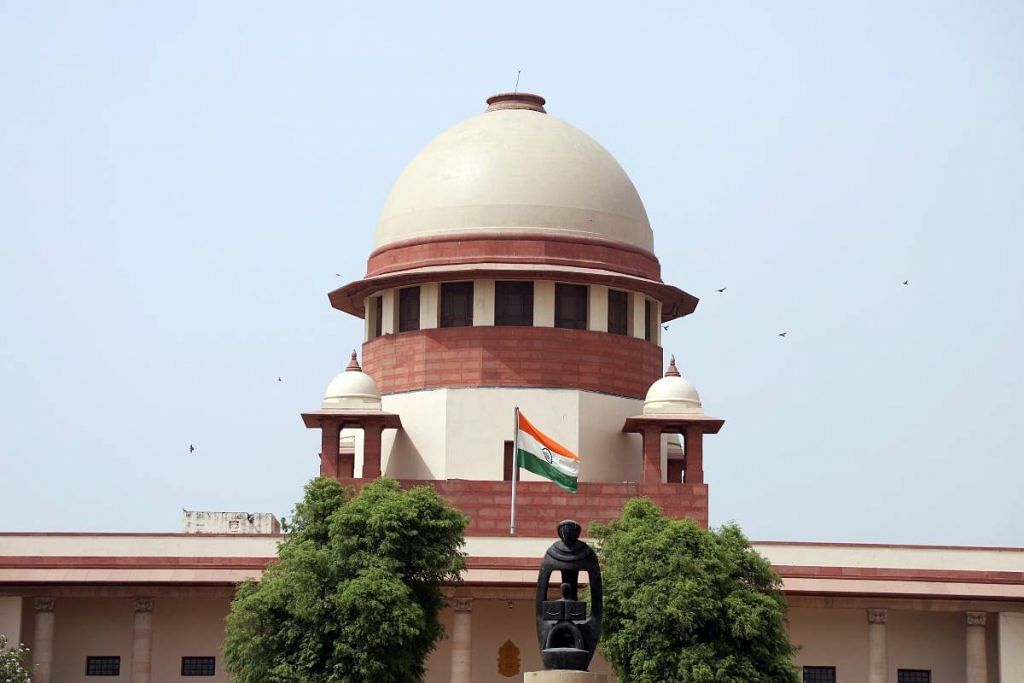New Delhi: Petitioners who have approached the Supreme Court with a plea to declare same-sex marriages valid took strong objection Monday to the Union government’s contention that Parliament alone should be allowed to debate the matter.
The government had argued that same-sex marriages would affect many ancillary issues, such as the psychology of a child brought up by a homosexual couple. While advocate Arundhati Katju, appearing for one of the petitioners, interjected, another lawyer spoke from the back, terming the government’s statement “very offensive”. She stopped Solicitor General Tushar Mehta — who had reiterated the stand the government spelled out in an affidavit filed Sunday — and said many petitioners before the court had adopted children and were looking after them.
Katju’s assertion also prompted Chief Justice of India D.Y. Chandrachud to remark that adopted children of lesbian or gay couples don’t “necessarily” have to be gay or lesbian themselves.
The lawyer further differed from Mehta’s view that the 2018 judgment in the Navtej Johar case had not recognised the union of two individuals belonging to the same gender as marriage. Katju argued that the solicitor general’s interpretation was incorrect.
The Navtej Johar judgment had decriminalised homosexual sexual relationships in India by reading down section 377 of the Indian Penal Code (IPC) to the extent that it permitted consensual partnerships between two adults of the same gender.
Senior advocate Neeraj Kishan Kaul added that in the Navtej Johar case, the constitution bench had included the right to marriage, procreation and sexual orientation. The petitioners have relied on this judgment to argue their case, he said.
Special Marriage Act ‘not limited to heterosexual marriage’
Kaul also mentioned the 2017 Puttaswamy judgment, which declared the right to privacy a Fundamental Right. He said that the rights of same-sex couples that have been recognised are far “beyond the pedantic interpretation being sought to be given to the Special Marriage Act.”
He rebutted Mehta’s claim that many sections of other laws may become otiose in case same-sex marriage is permitted. Mehta had said that several existing laws, including the Indian Penal Code, recognise marriage as being between a biological man and a biological woman.
However, Kaul read out the Special Marriage Act to show that the law — otherwise invoked by interfaith couples for tying the knot — doesn’t limit its implementation to a marriage between a woman and a man. He highlighted that the act merely refers to “marriage between two persons” who are capable of giving valid consent. The law only outlines the ages of consent for males and females as 21 and 18 respectively, he added.
Mehta clarified once again that the top court had already upheld the right to love and express it, and no one is interfering with this. “But the court said that it should not be held to mean that it includes the right to marry, and the court was careful in doing so,” he added.
The law officer also submitted that marriage is not just a contract for Hindus, although it may be so in Mohammedan law.
“In Islam too, it is between a biological man and a biological woman. The moment marriage as a recognised institution comes between (people of the) same sex, (a) question will come on adoption. Parliament will have to examine and see the will of the people. The psychology of a child has to be examined, whether it can be raised in such a way. Parliament will factor in the societal ethos,” the solicitor general said.
It was this submission by Mehta that evoked a sharp response from Katju, who interjected and expressed concern over the law officer’s statement.
The solicitor, however, rejected the notion that the government was attempting to attach a stigma to homosexual relationships. He said the only issue before the court was whether this type of relationship could be protected by the government. Parliament was the correct platform to determine this, he argued.
(Edited by Rohan Manoj)
Also read: ‘Against Indian notion of marriage’ — why Modi govt is opposed to registering same-sex marriages
